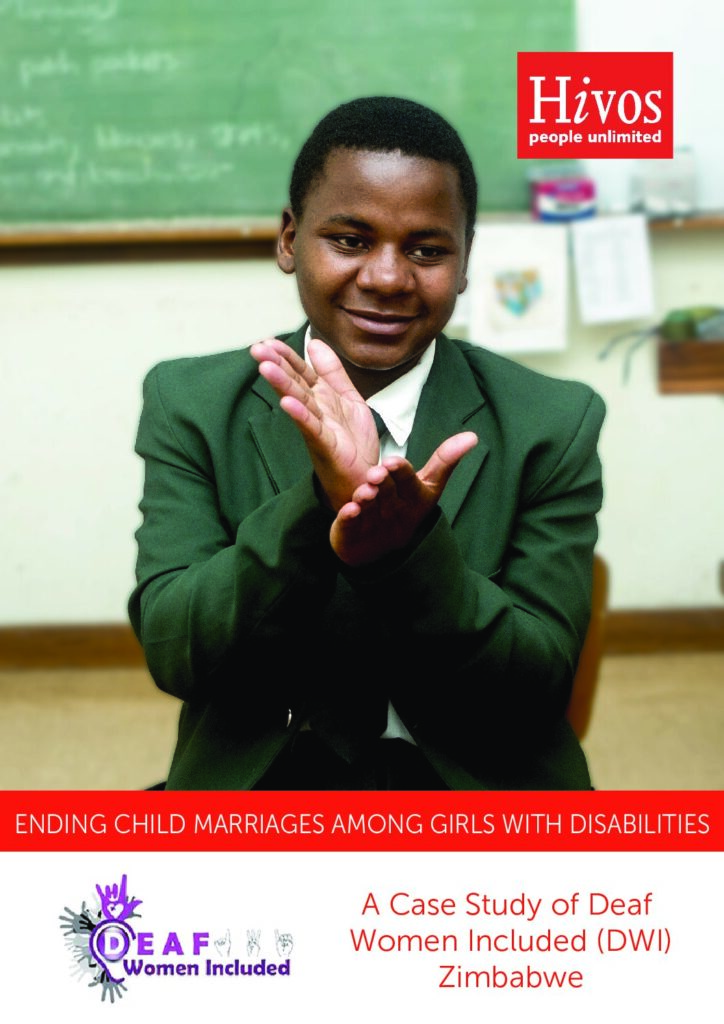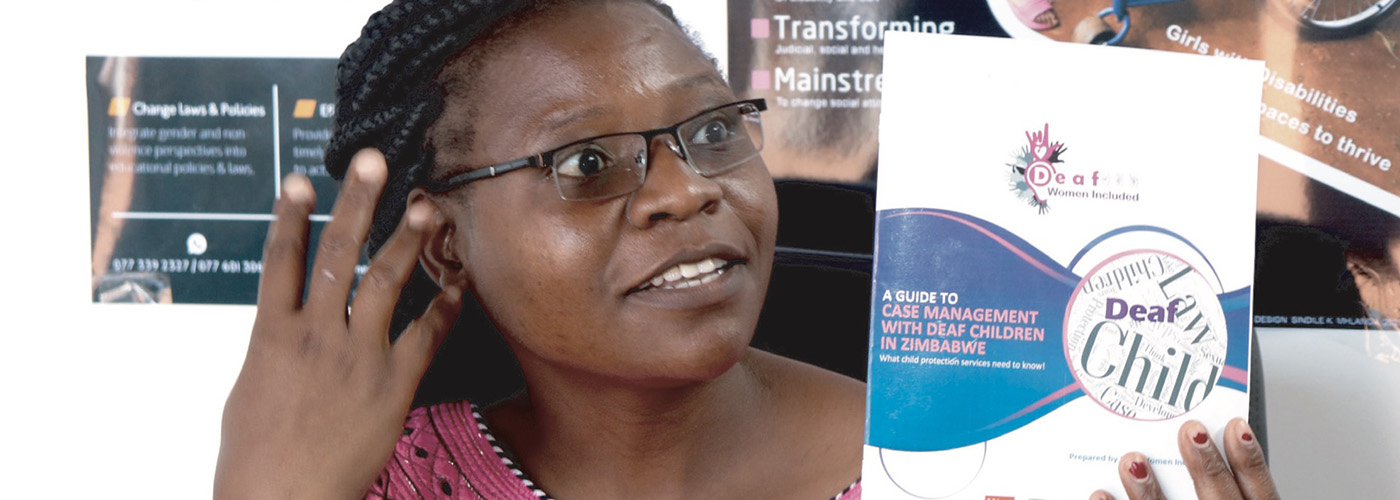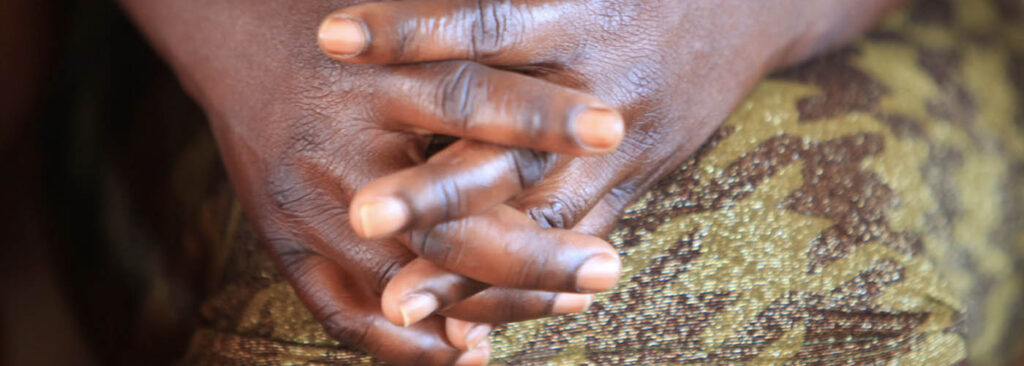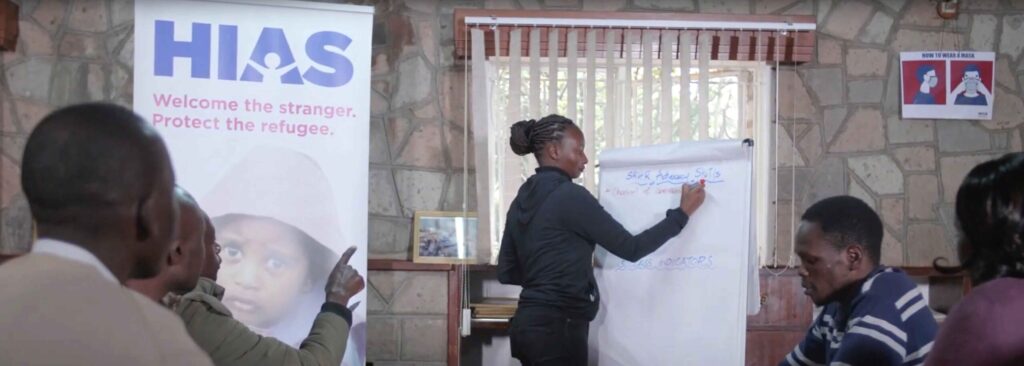In Zimbabwe, one in three girls is married off before they reach the age of 18. Most of the causes of child marriages are preventable and are caused by a myriad of interlinked factors. In Zimbabwe, there are three main drivers of child marriage: cultural and (forced) marriage practices, religion and poverty. The national prevalence for child marriage is 32.6 percent. Child marriages have negative effects on girls, especially on girls with disabilities in poor communities who are impacted by the intersection of disability, gender, poverty, and age.
With support from the The Regional SRHR Fund, Deaf Women Included (DWI) implemented a program on ending child marriages among deaf girls addressing the underlying factors for the lack of access to Adolescent Sexual and Reproductive Health and Rights (ASRHR) services since 2020 in Zhombe, Dora, Gweru, and Harare districts. To achieve these goals, DWI implemented the following activities: community dialogue meetings, production of accessible information on child marriages, trainings with girls with disabilities, established Deaf Girl Clubs, research, and developed a case management booklet.

Through this project, girls with disabilities are being capacitated to recognize abuse, identify community members to whom they can report instances of abuse and understand the impacts of child marriages.
The case study is part of the Regional SRHR Fund’s documentation of case studies aimed at supporting cross learning and knowledge sharing to enable organizations conceptualize, design and coordinate adolescent SRHR advocacy. This initiative has been made possible with support from Sida through the Regional SRHR Fund.




